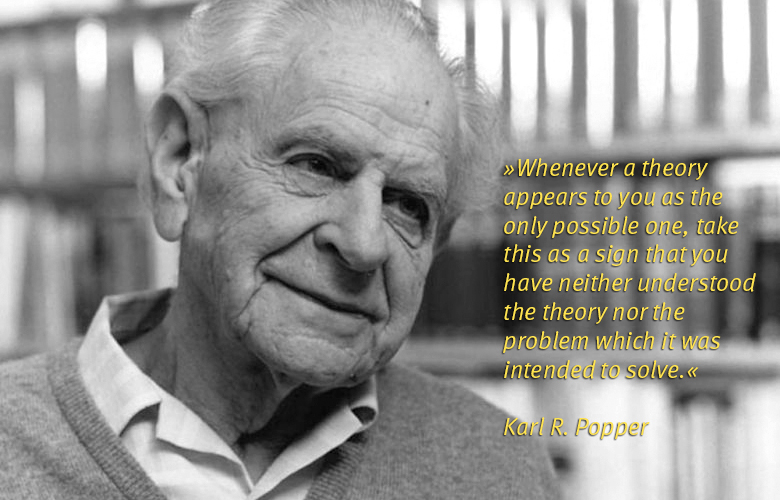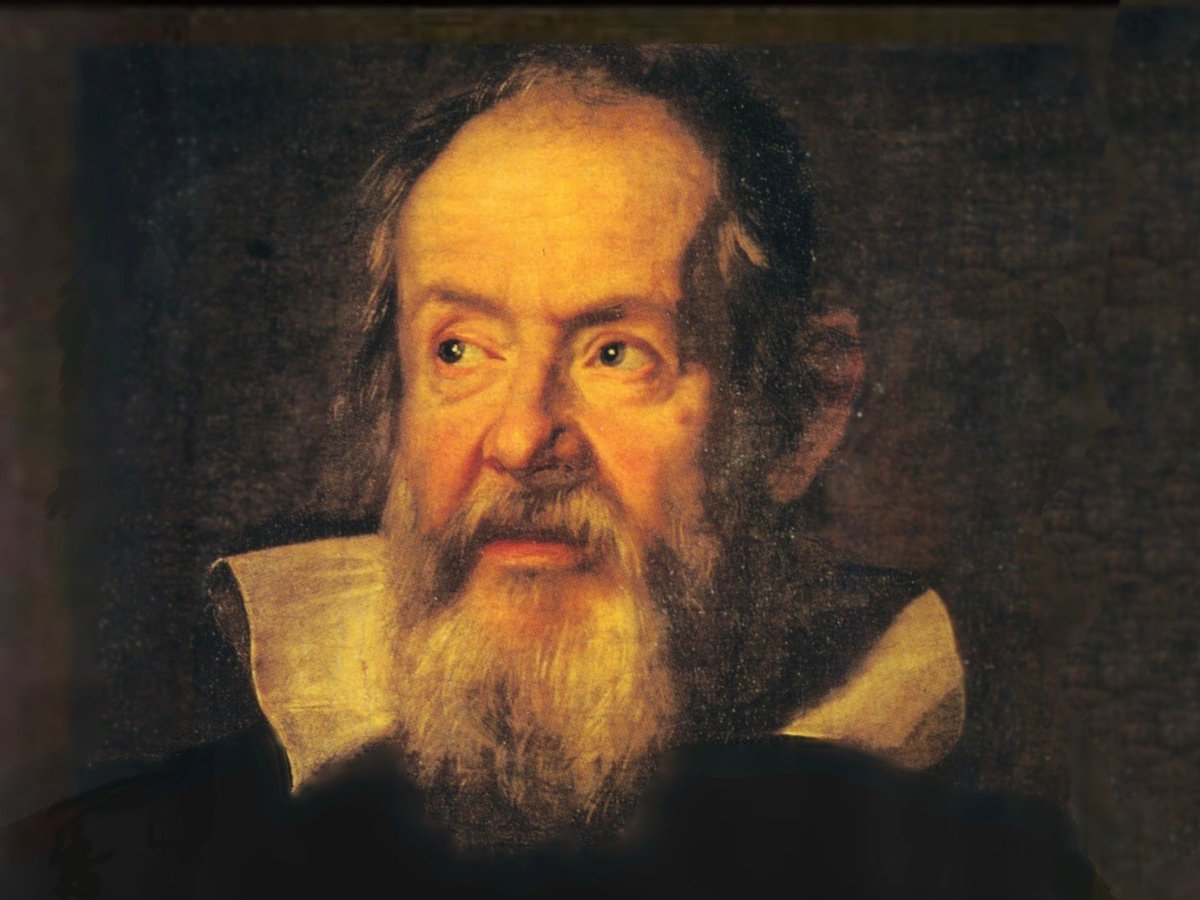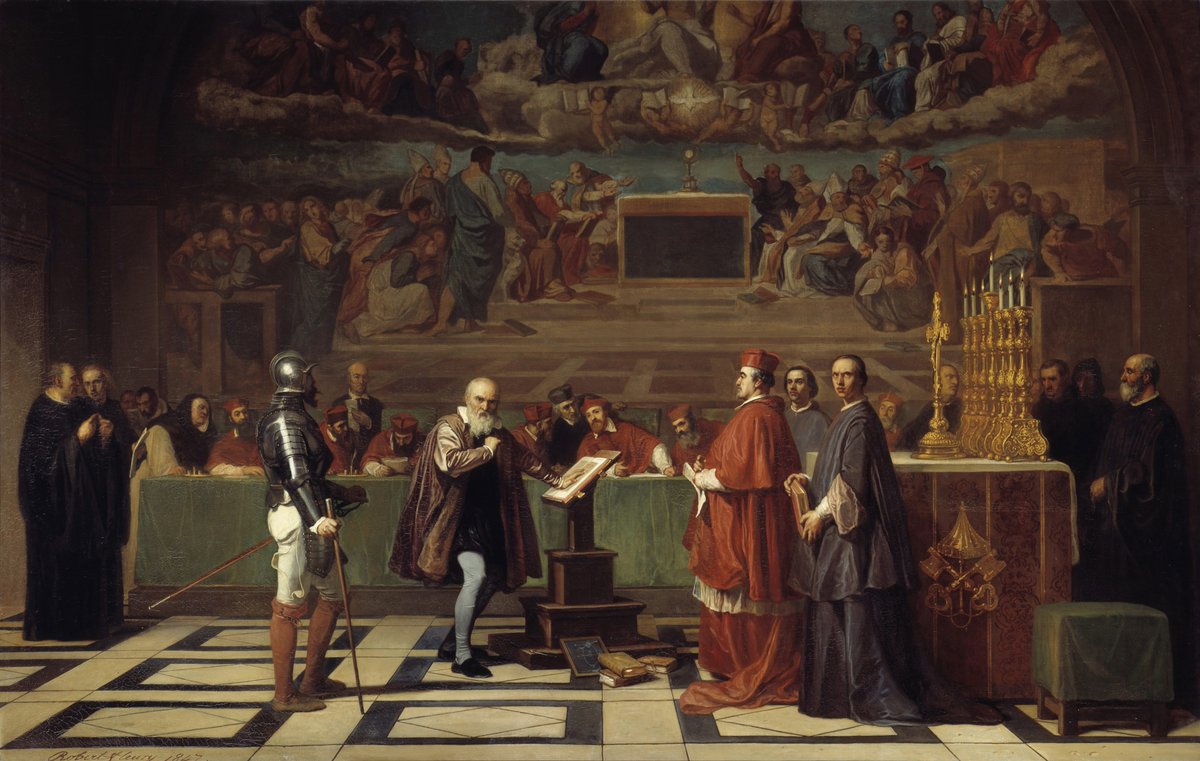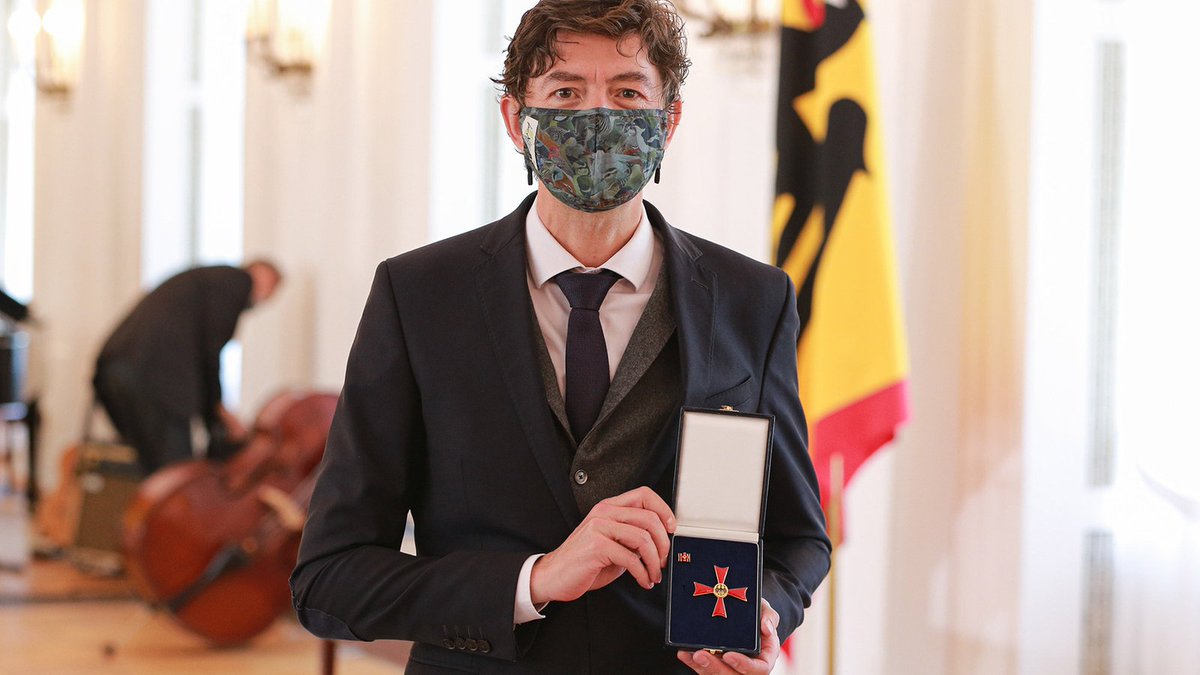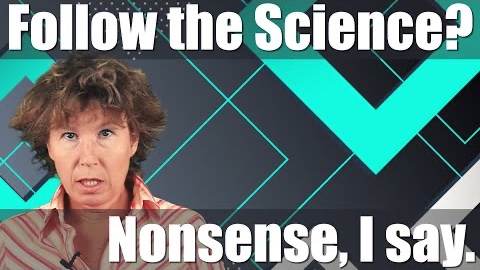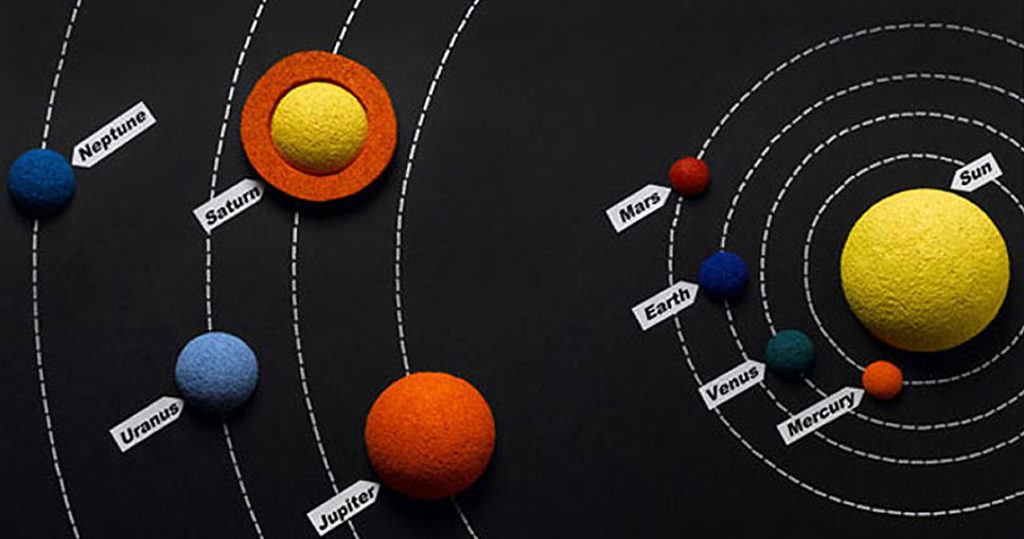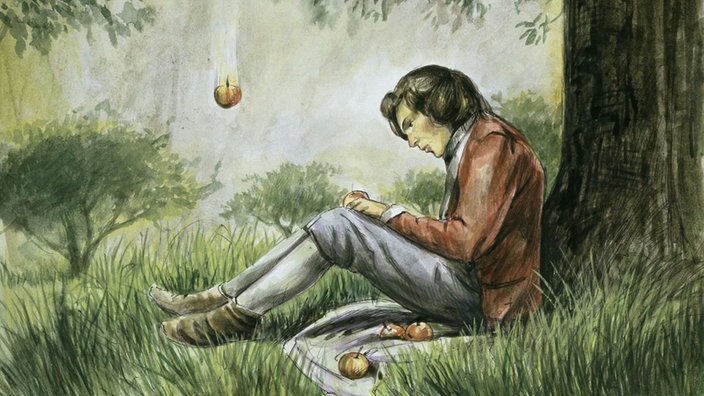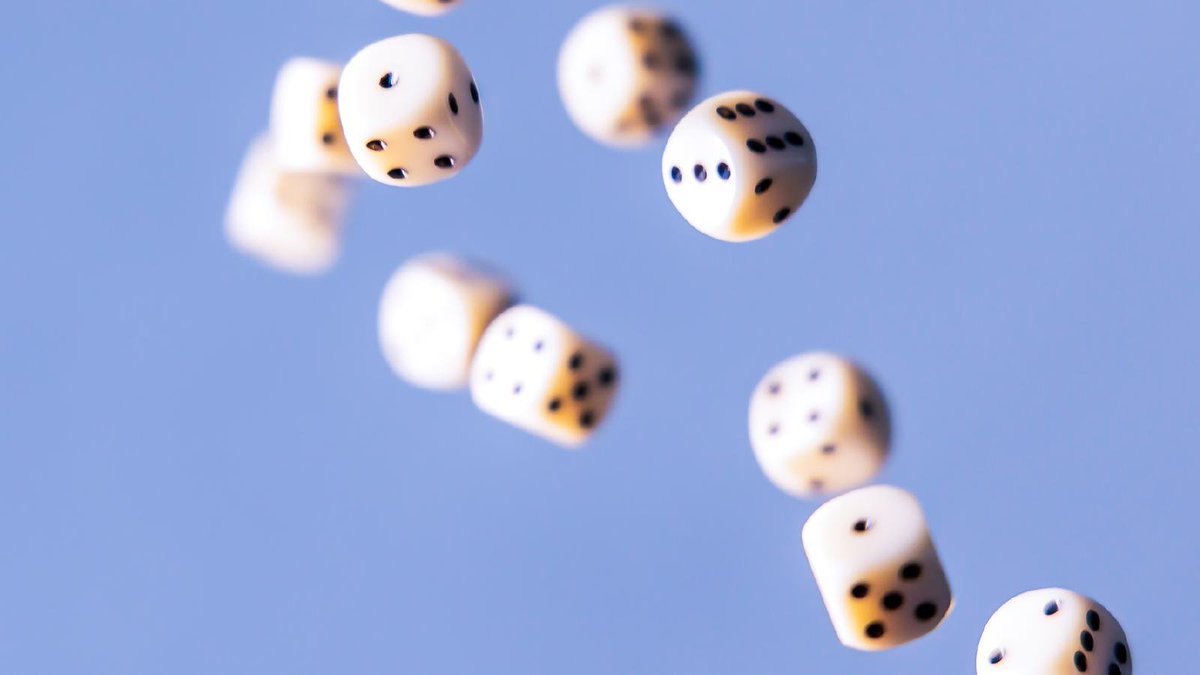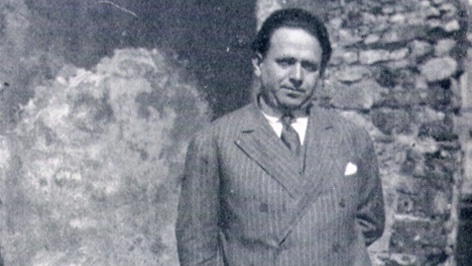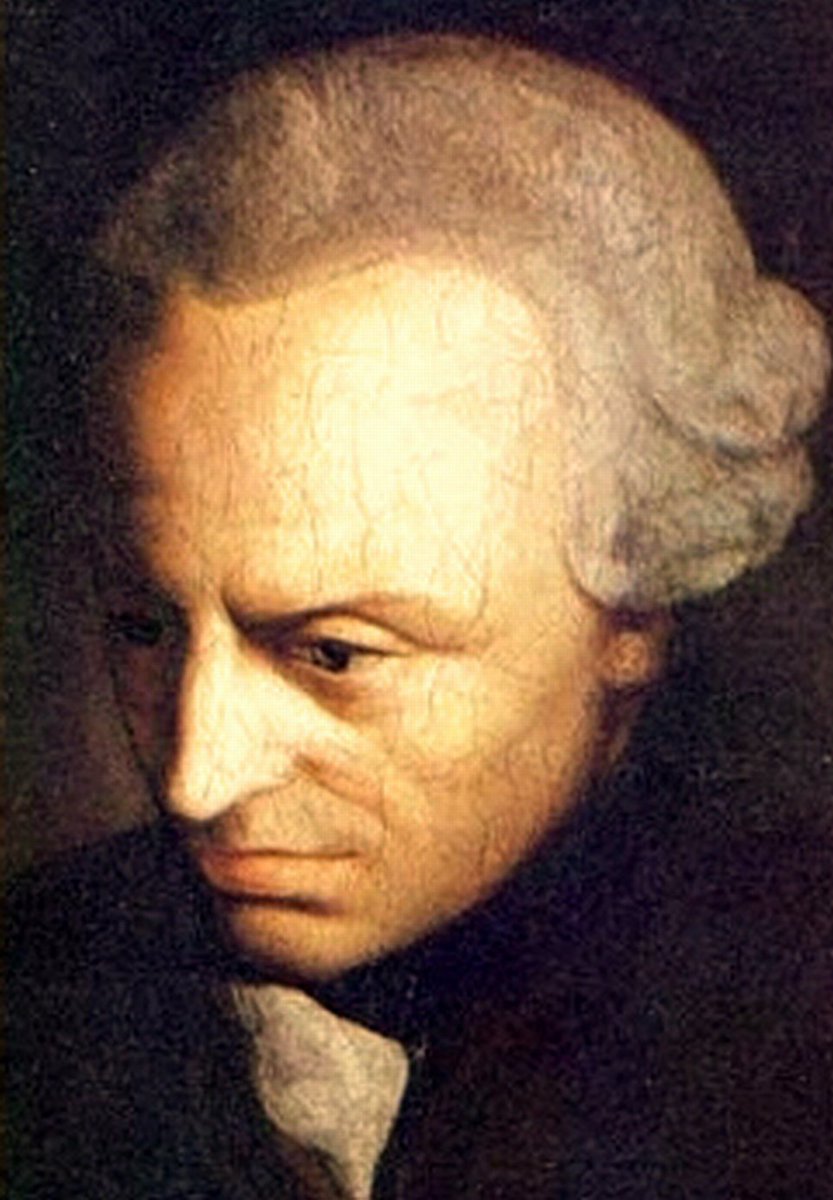1/: Of the impossibility of truth, the limits of knowledge and the end of science in the #corona-crisis.
A (rather lengthy) thread
A (rather lengthy) thread

2/: Let us assume that Galileo Galilei had never experimentally verified the scientific conviction of his time that heavy objects fell faster to the ground. He would not have the contemporary astronomical wisdom, would not have questioned fundamental laws of his time.
3/: He could have secured the applause of the powerful, lived in prosperity as a respected scholar, and been guaranteed a place of glory in history. He would have been spared the Inquisition and all the hardships of the last years of his life.
4/: Today, such streamlined conformity scholars even receive the Federal Cross of Merit, at least here in Germany.
5/: But Galileo felt committed to the search for unaltered knowledge. Fortunately, because who knows how long it would have taken for a polymath of his stature to give modern science such a groundbreaking boost.
6/: #FollowTheScience is an expression of an almost childish idea of truth, which is based on a fundamental misunderstanding of the possibility of human knowledge and ultimately manifests itself in a belief in science that takes on almost religious dimensions.
7/: The truth play by scientists like Christian #Drosten and institutions like the #WHO during the #Corona crisis, is the exact opposite of science and effectively comes close to a revocation of over 300 years old principles of scientific work.
8/: The methodology of modern science is based on a long discursive process of epistemology and philosophy of science, which started with Galileo and was shaped by important philosophical currents, from the Enlightenment to logical empiricism.
9/: Science does not serve the search for truth, but for knowledge that might approach the truth. Thereby their theses are at least
- honest,
- verifiable,
- and repeatable.
If only one of these principles is violated, it becomes a valueless end in itself.
- honest,
- verifiable,
- and repeatable.
If only one of these principles is violated, it becomes a valueless end in itself.
10/: Put simply, scientific theories must be provably capable of failing in the presence of the experience of reality. Everything else is dogma. No theory can claim to be true. Absolute truth remains beyond the reach of human knowledge.
11/: A simple (much cited) example: We can develop an evidence-based thesis, using empirical methods, about the color of swans and state: "All swans are white." This thesis is testable and valid as long as we do not encounter a black swan.
12/: But we could also have stipulated, "All swans shall be white." Then the first appearance of a black bird that looks like a swan would not be a violation of our postulate, but merely the appearance of a new species.
13/: Thereby we did not deal with the truth at all, but only with the question of how we want to deal with new knowledge. That there are also black, swan-like birds, does not change thereby. And whether pink swans also exist, we simply do not know, and never will.
14/: Scientific theories are therefore models by which we try to explain partial aspects of our reality as close to the truth as possible. They can even be suitable to describe reality and still be wrong.
15/: Newtonian physics, for example, is suitable to describe large parts of our reality. However - and we know this thanks to Einstein - it is wrong as universal theory. Its simplifications are insufficient to explain interactions of the biggest and smallest parts of our world.
16/: What does this have to do with #Corona you ask? Simply everything.
In April 2020, the scientific community was neutrally faced with the task of assessing whether #SARSCOV2 was a particularly dangerous virus that needed special attention. Just that. That one task.
In April 2020, the scientific community was neutrally faced with the task of assessing whether #SARSCOV2 was a particularly dangerous virus that needed special attention. Just that. That one task.
17/: And yet it has failed in such a profound and unimaginable way that it is difficult to wrap this failure up in a few Twitter posts. Let's just examine those three principles that every scientific paper should fulfill.
18/: Honesty
WHO, Mr. #Drosten, Johns Hopkins University & many more are intertwined in a web of conflicts of interest so tight it can make one dizzy.
http://enformtk.u-aizu.ac.jp/howard/the_classified_drosten_files/
WHO, Mr. #Drosten, Johns Hopkins University & many more are intertwined in a web of conflicts of interest so tight it can make one dizzy.
http://enformtk.u-aizu.ac.jp/howard/the_classified_drosten_files/
19/: Let's just take the unique posse around the act of publishing the Corman-Drosten protocol at Eurosurveillance, which @goddeketal has worked up excellently in his thread. Try to understand it and ask yourself how this has anything to do with honesty! https://twitter.com/goddeketal/status/1346428529664290816?s=20
20/: Or ask yourself why a Johns Hopkins University was in a hurry to spread naked case number panic with the excruciating tool of their dashboard instead of scientifically putting case numbers in perspective. Honesty?
21/: Question why #Corman, #Drosten, and their co-authors published a #PCR protocol that scrupulously disregarded the simplest basic rules, well known among molecular biologists, in the design of such tests.
https://cormandrostenreview.com/report/
https://cormandrostenreview.com/report/
22/: And finally: Is it honest, if the tone-setting scientists, whose modus operandi should consist in the dialectical discussion of thesis and antithesis to synthesis, not only avoid but fight any discourse?
23/: Verifiability
The claim of a worldwide pandemic should be subject to the strictest possible degree of verifiability. All the more so if one considers the inconceivably serious consequences that this will have for the people.
The claim of a worldwide pandemic should be subject to the strictest possible degree of verifiability. All the more so if one considers the inconceivably serious consequences that this will have for the people.
24/: The opposite, however, has happened. An important indicator of the severity of an epidemic is the lethality of the disease. To assess this, the CFR/IFR is determined. Absolutely essential for this is a clear record of those who have died from a disease.
25/: Which is the procedure for #Corona? Anyone who dies within a certain period of time after testing positive is included in the statistics. It doesn't matter if you succumb to the consequences of a car accident or if you thought bathing with a hair dryer was a good idea.
26/: And how do they test anyway? Unknown. To date, there are no validatable standards for testing laboratories. Do they test for one, two or three loci, which ct-values do apply and for which genes? All more or less unclear. Every laboratory, every country does it differently.
27/: All basics for a reliable assessment of the risk of infection are based on unverifiable numerical mysticism.
Let us forget the verifiability!
Let us forget the verifiability!
28/: Repeatability
If verifiability already fails, repeatability is impossible. How can the CFR/IFR of a cohort be reliably verified in a repetitive manner if its determination is already unclear?
If verifiability already fails, repeatability is impossible. How can the CFR/IFR of a cohort be reliably verified in a repetitive manner if its determination is already unclear?
29/: Why do completely disparate pictures emerge for death and case numbers worldwide? Because different measures have been taken everywhere? If so, surely countries with tougher measures should do better than those with lesser ones. Is that the case? https://twitter.com/DaFeid/status/1356983901676335105?s=20
30/: Nothing, absolutely nothing, makes sense and the scientists under obligation do not make any attempt to collect meaningful data.
Which brings us back to honesty.
Which brings us back to honesty.
31/: Medicine has always had well-founded deficits in terms of scientific work. In many cases of medical research, the demand for testability and repeatability is not easily met for ethical reasons.
32/: However, although medical research is also committed to evidence-based work and must face an objective review of its theses, eminence-based decisions still determine the medical establishment with startling regularity.
33/: Experience beats knowledge? That seems to be a widespread misconception. The great Tucholsky already knew:
"Don't let yourself be impressed by any expert who tells you: Dear friend, I've been doing this for 20 years! You can also something wrong for 20 years."
"Don't let yourself be impressed by any expert who tells you: Dear friend, I've been doing this for 20 years! You can also something wrong for 20 years."
34/: Remember, when once again so-called fact checkers try to let the air out of the tires of well-founded theses with infantile anecdotes, instead of discussing them with scientific objectivity!
35/: Remember the centuries-old consensus of scientific work when pathetic journalists, power-hungry politicians and scientists driven by self-interest tell you something about the truth!
36/: Yes, regrettably, people die from a variety of diseases. We are fortunate to live in a time when many of these diseases are less dangerous, sometimes even curable, thanks to first-class science and research.
37/: But the death of truthfulness, the fading away of the rational mind at record speed, and the end of scientific credibility, only we ourselves can prevent. By demanding it.
38/: By not allowing ourselves to be impressed by the glamor of a title or the position of an institution, but by asking questions. "Dare to be wise!", Kant urged us.
This imperative is more relevant and important than ever!
This imperative is more relevant and important than ever!
Addendum: This is the english translation the following, originally in German written, thread. https://twitter.com/theotherphilipp/status/1357653647757365248?s=20

 Read on Twitter
Read on Twitter